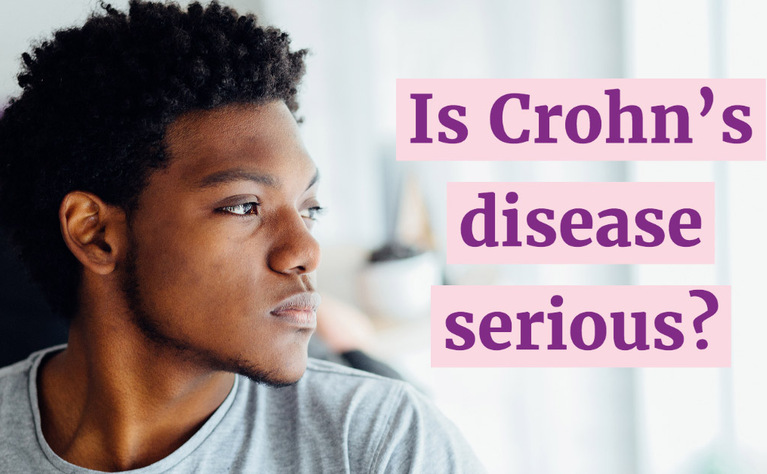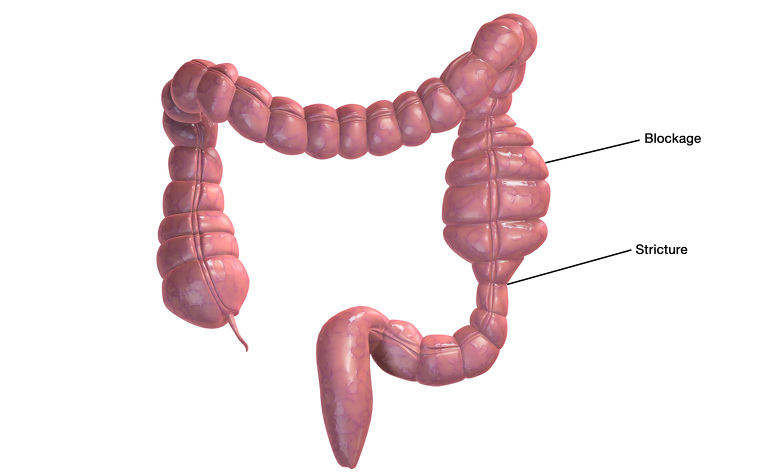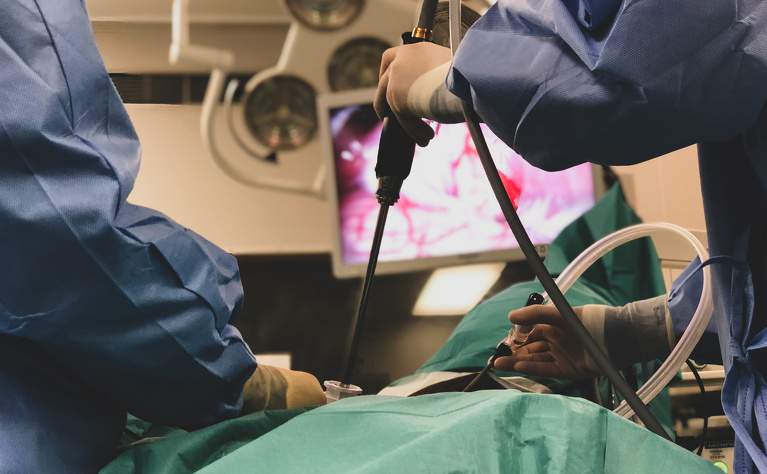
Finding out that you have Crohn’s disease can be scary and one of the first questions you may want to know the answer to is just how serious is Crohn’s disease? In this article we take a look...
Crohn’s disease has the potential to be a serious illness due to some of the complications it can cause.
Most people with Crohn’s disease do not experience the more serious complications as their disease is kept under control by their treatment. Following the treatment given to you by your doctor will help to minimise the risk of complications.
Some of the things that can cause serious complications are:
A stricture is a narrowing in the intestine caused by repeated inflammation from Crohn’s disease. Over time this inflammation can cause scar tissue to form which makes this area of the intestine narrower and harder for food to pass through. This can cause pain and in very severe cases can cause the intestine to become completely blocked, which is an emergency. The treatment for strictures varies depending on the severity. In less severe cases treatment to reduce inflammation may be increased, while in the more severe cases surgery will be needed to remove the stricture.

Abscesses can form in the small or large bowel in people who have Crohn’s disease. In a bowel abscess an inflamed pocket of tissue becomes filled with pus. This can become very swollen and painful. Fistulas are tunnels which connect two parts of the bowel together or the bowel to other organs. Fistulas are often caused by an abscess forming first and creating a hole which starts to form a tunnel. Treatment of abscesses involves draining the pus, either by surgery or inserting a drain into it which will need to be left in place for several days or weeks. You may then need surgery or antibiotics to repair it. Some fistulas can be treated using medication, however others need surgery to be closed. This isn’t always successful and you may need several treatments before the fistula is healed.
In serious cases fistulas can cause infections which can lead to sepsis. This can be life-threatening.
Vitamin and mineral deficiencies are common in Crohn’s disease. They can be caused by a number of different things, including;
If you aren’t getting enough of the right nutrients from your food then you may end up malnourished. This can be a serious condition which generally causes weight loss, tiredness and weakness and getting ill often. However, some people can experience malnutrition without losing weight.
Having Crohn’s disease affecting all or much of your large intestine (Crohn’s colitis) may mean you have a slightly increased risk of developing bowel cancer, similar to that of people with ulcerative colitis. Studies for bowel cancer in UC show varying risks, ranging from 2-3 times to 6 times that of the general population2. It is possible to get cancer in your small bowel, however it’s much rarer and is thought around 2% of people with Crohn’s disease in this area will develop small bowel cancer3.
Reading that you may be at an increased risk of bowel cancer can be alarming, but it’s important to know that the numbers of people with Crohn’s disease developing bowel cancer has been decreasing. This may be due to better medications and an increase in monitoring through colonoscopy procedures, which is one of the reasons why it’s important to always attend your endoscopy appointments, even if you don’t like them.
Crohn’s & Colitis UK reports that up to 80% of people with Crohn’s disease will need to have surgery at some point in their lifetime4. Having surgery for any reason carries risks of complications such as infection, bleeding/blood clots, accidental damage to another part of the body and adverse reaction to anaesthesia.
Some of the surgeries used in the treatment of Crohn’s disease include:
Read more about surgery for Crohn’s disease

There are a few things you can do to help reduce your risk of Crohn’s disease complications:
One of the main risk factors for developing complications from Crohn’s disease is having uncontrolled inflammation due to medications not working or not being taken correctly. There is a blood test, called PredictSURE IBD, now available for Crohn’s disease patients which can help to predict how severe your Crohn’s disease is likely to be. This can help your doctor target your treatments better early on in your disease, and give patients predicted to have more mild disease more confidence in receiving less frequent monitoring.
Crohn’s disease itself is not considered to be a life-threatening condition, however some of the complications described above, such as sepsis or bowel cancer, may cause you to have an increased risk of death slightly over the general population. Getting treatment early for any complications can help to reduce this risk
Harvard Health Letter: Are your medications causing nutrient deficiency? https://www.health.harvard.edu/staying-healthy/are-your-medications-causing-nutrient-deficiency
Cancer Research UK: What is small bowel cancer https://www.cancerresearchuk.org/about-cancer/small-bowel-cancer/about
Crohn's & Colitis UK: Surgery for Crohn's disease https://www.crohnsandcolitis.org.uk/about-crohns-and-colitis/publications/surgery-for-crohns-disease